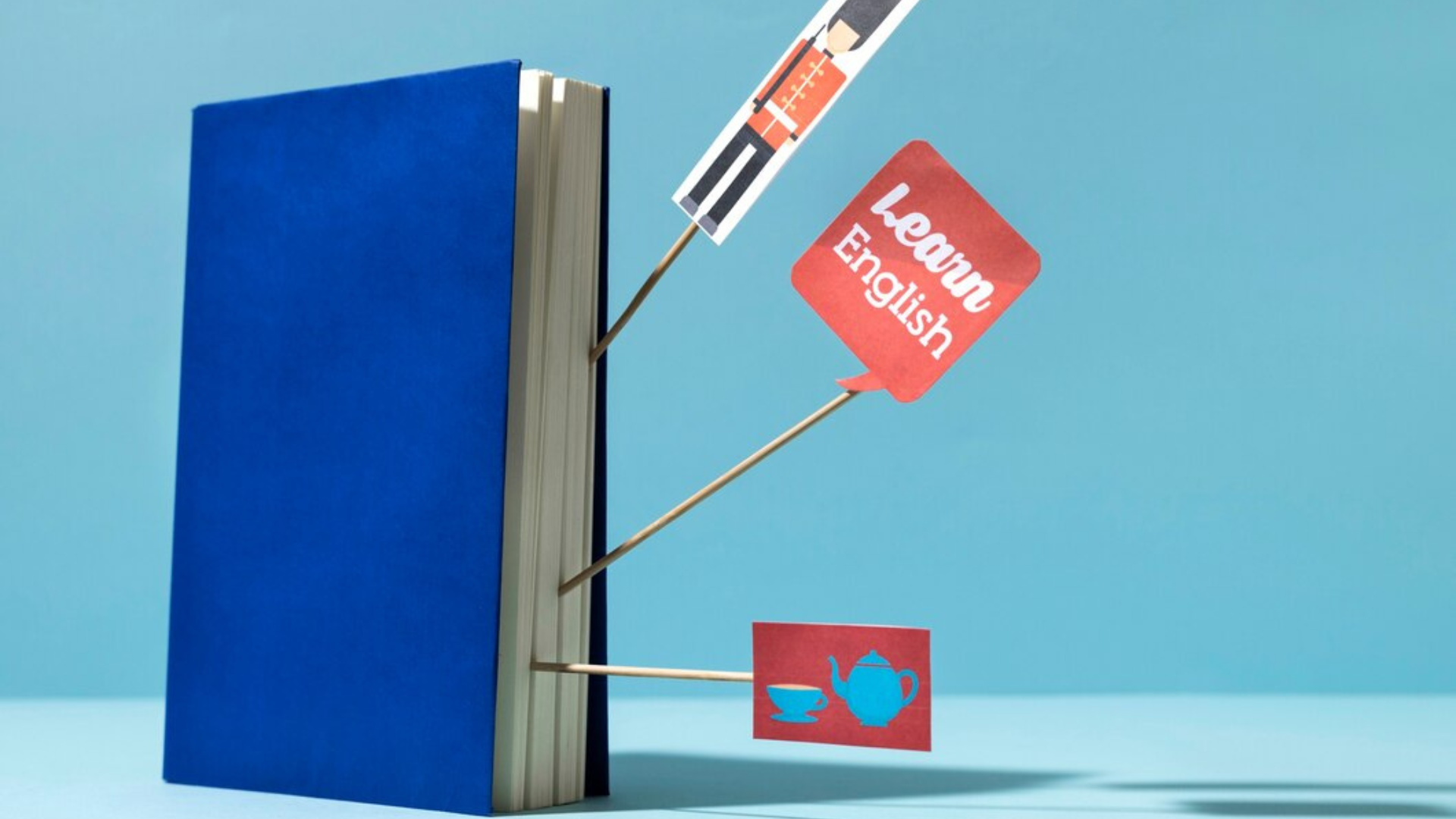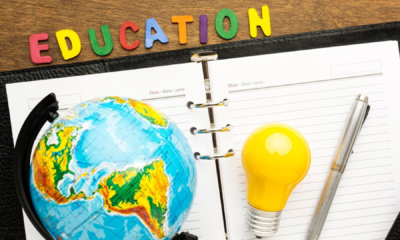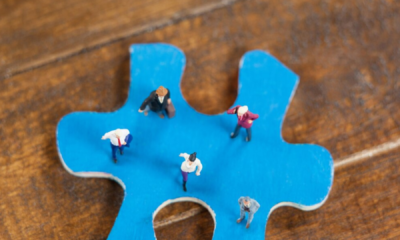LAW
Google Books as a Resource for Understanding Legal and Cultural Tensions in the Olympics

The Olympic Games are more than just a showcase of athletic prowess; they embody the intersection of law, culture, and values on a global stage. As nations come together to compete, underlying tensions often emerge—tensions shaped by legal disputes, cultural clashes, and historical legacies. Understanding these complexities requires delving into a wealth of resources that capture the essence of the Olympics.
Enter Google Books: an invaluable tool for researchers and enthusiasts alike. With its vast collection of literature and historical documents, Google Books facilitates exploration into the myriad issues surrounding the Olympics. From doping scandals to nationalistic fervor, this platform opens doors to insights that help unravel not only what happens on the field but also how it reflects broader societal dynamics.
Whether you’re a student studying sports law or simply curious about the deeper narratives in Olympic history, Google Books offers pathways to knowledge rarely explored elsewhere. Join us as we dive deep into how this treasure trove can illuminate our understanding of legal challenges and cultural tensions tied to one of humanity’s most cherished traditions—the Olympics.
History of the Olympics and Its Evolution over Time
The Olympics have a rich history dating back to ancient Greece in 776 BC. Originally, these games celebrated athletic prowess and honored Zeus. Participants were mostly male citizens of city-states.
Over centuries, the event faded after Rome’s conquest of Greece. It wasn’t until 1896 that the modern Olympics emerged, thanks to Pierre de Coubertin’s vision for reviving this tradition. This revival introduced international competition and new sports.
As time progressed, the Games evolved dramatically. Women were first allowed to compete in 1900, marking a significant shift towards inclusivity. Further changes included incorporating more diverse sports and adapting to global audience expectations.
Political dynamics also influenced the Olympics significantly over the years. From boycotts during the Cold War era to controversies surrounding nationalism today, each iteration reflects contemporary societal values and tensions on an international stage.
Legal Issues Surrounding the Olympics: Doping, Sponsorships, and International Law
Legal issues in the Olympics often dominate headlines. Doping remains a critical concern, with athletes facing stringent regulations to ensure fair play. The quest for gold can tempt individuals to take shortcuts, leading to scandals that shake public trust.
Sponsorships introduce another layer of complexity. Major corporations vie for visibility during this global event, sometimes overshadowing the athletic spirit with commercial interests. Conflicts can arise between sponsors and national teams over branding rights and revenue sharing.
International law plays a crucial role as well. The Olympics involve multiple nations, each with its own legal frameworks and cultural perspectives. Disputes may emerge regarding athlete eligibility or host country obligations under international agreements.
These issues create an intricate web of laws interwoven with values and cultures—reflective not just of sports but also of society at large.
Cultural Tensions in the Olympics: Nationalism, Stereotypes, and Controversies
Cultural tensions often surface prominently during the Olympics, reflecting deep-rooted national identities and rivalries. Athletes become symbols of their countries, evoking pride but also fierce competition.
Nationalism can overshadow sportsmanship. Fans rally behind their teams with fervor that sometimes breeds hostility toward opponents. This rivalry plays out not just in stadiums but across media platforms, igniting debates about loyalty and identity.
Stereotypes emerge as well, influencing perceptions of athletes based on race or nationality. These oversimplified views can lead to biased narratives around performances and behaviors.
Controversies arise from political statements made by athletes or nations boycotting events due to geopolitical tensions. Such actions blur the line between sport and politics, complicating the Olympic spirit of unity.
These cultural dynamics shape how we perceive the Games, adding layers to what is ostensibly a celebration of global athletic prowess.
How Google Books Can Provide Insight into These Issues through Literature and Historical Documents
Google Books opens the door to a treasure trove of literature and historical documents. This vast resource allows researchers to delve into the complex landscape of Olympic laws, culture, and values.
Through Google Books, users can find detailed accounts of past Olympics that illuminate legal challenges faced by athletes and organizers. Academic texts analyze doping controversies, sponsorship dilemmas, and international law’s impact on global sporting events.
Additionally, cultural narratives unfold in archived newspapers and books. They capture societal reactions during pivotal moments in Olympic history. These perspectives reveal how nationalism shapes public sentiment around the Games.
The blend of scholarly research and primary sources fosters a deeper understanding of tensions surrounding the Olympics. Researchers can explore varying viewpoints that highlight conflicts between tradition and modernity within this prestigious event.
Case Studies: Examples of Olympic Controversies Explored through Google
One striking case is the 2008 Beijing Olympics, which sparked debates over human rights and cultural representation. Google Books holds a wealth of resources discussing the implications of hosting the Games in a country with such a complex political landscape.
Another notable example is the controversy surrounding Olympic athlete Marion Jones. Her doping scandal not only impacted her career but also raised questions about fairness and integrity in sports. Insights found through Google Books reveal how this incident shifted public perception regarding performance-enhancing drugs.
Then there’s the ongoing discussion about nationalism during events like the 1936 Berlin Olympics. Literature accessed via Google Books delves into how these Games were used as propaganda by Nazi Germany, highlighting deep-rooted tensions between sports and politics.
Each case illustrates how examining historical documents can give us clarity on modern challenges in Olympic history.
Overview of the Olympics and its cultural significance
The Olympics represent more than just sporting events. They embody a rich tapestry of cultural expression and global unity. Since their inception in ancient Greece, the Games have evolved into a grand stage where nations showcase their athletic prowess.
This event has immense cultural significance, fostering pride among countries while also highlighting unique traditions. Athletes often become symbols of national identity, inspiring generations through their achievements.
Yet, the Olympics are not without controversy. Nationalism can sometimes overshadow sportsmanship, leading to tensions between competing nations. Cultural stereotypes may surface as well, complicating perceptions and interactions during the Games.
Through performance and participation, athletes bridge gaps between diverse cultures. The Olympic spirit encourages dialogue and understanding amid competition’s intensity. This duality makes the Olympics a fascinating study of human values amidst legal complexities and cultural dynamics.
Legal issues surrounding the Olympics
The Olympics, a global stage for athletic prowess, is not without its legal labyrinths. Doping scandals have marred the integrity of numerous Games, sparking heated debates over fairness and ethics. Athletes caught in these controversies face suspensions and tarnished reputations.
Sponsorship deals add another layer of complexity. Companies invest millions to align their brands with Olympic values but often clash with the ideals of sportsmanship. Legal disputes can arise when sponsorship contracts are breached or when athletes voice dissent against corporate influence.
International law also plays a crucial role during the Olympics. Host countries must navigate regulations concerning human rights, labor laws, and environmental standards while managing large-scale events. These challenges can lead to significant tensions between local populations and international bodies seeking compliance.
Understanding these nuances requires digging deeper into legal texts and historical contexts that shed light on how such issues evolve across time and cultures.
Using Google Books to research legal and cultural tensions in the Olympics
Google Books serves as a treasure trove for anyone diving into the complex landscape of Olympic laws and cultural tensions. With its extensive digital library, researchers can access historical texts, legal analyses, and various critiques that shed light on these issues.
Searching through Google Books reveals insights from scholars who have examined doping scandals or sponsorship controversies in depth. These writings often provide contextual understanding that goes beyond headlines.
Moreover, you can uncover narratives that highlight nationalism’s role during pivotal Olympic moments. Cultural perspectives captured in literature reflect how different societies interact with the Games.
The platform also features firsthand accounts from athletes and officials who experienced these tensions firsthand. Such primary sources enrich your research by offering unique viewpoints rarely covered in mainstream media.
Conclusion:
In exploring Google Books as a Resource for Understanding Legal and Cultural Tensions in the Olympics, we have seen how this digital platform serves as a valuable tool for delving into the complex intersections of law, culture, and international sports. Google Books offers access to a vast repository of historical and contemporary texts that can illuminate the various legal challenges, ethical dilemmas, and cultural disputes that have shaped the Olympic Games over the years.
The Olympics, as a global event, are not just a celebration of athletic excellence but a microcosm of broader societal issues. From disputes over intellectual property and labor rights to the cultural impact of hosting the Games, Google Books provides scholars, researchers, and the general public with crucial resources to better understand these multifaceted tensions.
By leveraging this digital resource, we can gain deeper insights into the evolving dynamics of the Olympic movement, contributing to more informed discussions about its future. Google Books is not only a tool for academic research but also a means of fostering critical reflection on how legal and cultural forces continue to influence one of the world’s most prestigious sporting events.
LAW
“Finding the Best Family Law Lawyers Near You: A Guide to Expert Legal Support”

Finding yourself in the midst of a family legal issue can be overwhelming. Whether it’s a divorce, child custody battle, or adoption proceedings, navigating these emotional waters requires specialized knowledge and support. That’s where family law lawyers come into play. They are not just legal representatives; they’re advocates who understand the nuances of family dynamics and the laws that govern them.
If you’re searching for “family law lawyers near you,” you’re taking an important step toward securing expert guidance. But how do you find the right one? This guide will walk you through everything from understanding what family law covers to tips on working effectively with your lawyer. Let’s dive in and explore how to locate the best legal support tailored specifically for your family’s needs!
Understanding Family Law: What Does it Cover?
Family law encompasses a broad range of legal issues that affect families. It primarily deals with matters related to marriage, divorce, and child custody. Each case can be unique due to the emotional complexities involved.
Divorce is often at the forefront of family law. This process includes not just the dissolution of marriage but also property division and spousal support considerations.
Child custody arrangements are another significant aspect. Courts focus on what serves the best interest of the child when deciding parenting plans.
Adoption laws ensure that children find loving homes while protecting biological parents’ rights.
Other areas include domestic violence cases, prenuptial agreements, and guardianship issues. Understanding these components is vital for anyone seeking legal help in family matters.
When Do You Need a Family Law Lawyer?
Navigating family law can be complex and emotionally challenging. You may need a family law lawyer during significant life changes.
If you’re facing divorce, having legal support is crucial. A lawyer can help protect your interests and guide you through the process.
Child custody disputes are another situation where expert help is essential. Having a knowledgeable attorney ensures that your child’s best interests are prioritized in any agreement.
Adoption processes also benefit from professional assistance. Legal representation can simplify paperwork, making the path smoother for all involved.
Moreover, if you’re dealing with domestic violence or restraining orders, it’s vital to have an experienced advocate by your side to ensure safety and proper legal steps are followed.
Pre-nuptial agreements require careful drafting and understanding of rights; seeking a family law lawyer’s expertise will safeguard assets effectively.
The Benefits of Hiring a Family Law Lawyer
Navigating family law issues can be overwhelming. A skilled family law lawyer brings clarity to complex situations. They understand the intricacies of legal matters, helping you avoid costly mistakes.
Having expert guidance provides emotional support during challenging times. Your lawyer acts as an advocate, ensuring your voice is heard in negotiations or court proceedings. This relief allows you to focus on what truly matters—your family’s well-being.
Additionally, a family law attorney is familiar with local laws and regulations. Their knowledge helps streamline processes like custody arrangements or divorce filings.
With their experience, these lawyers can anticipate potential challenges, preparing strategies tailored to your unique circumstances. The right legal counsel not only protects your rights but also empowers you to make informed decisions for the future of your family.
How to Find the Best Family Law Lawyers Near You
Finding the best family law lawyers near you can feel overwhelming. Start by leveraging online resources. Websites like Avvo and Martindale-Hubbell offer directories where you can filter results based on location, ratings, and areas of expertise.
Next, ask for recommendations from friends or family who have faced similar legal challenges. Personal experiences often provide valuable insights into a lawyer’s approach and effectiveness.
Don’t overlook local bar associations. They typically have referral services that connect you with qualified attorneys in your area.
Once you’ve gathered a list, check their websites for reviews and client testimonials. This information helps gauge their reputation in the community.
Schedule consultations with potential candidates to discuss your case directly. Pay attention to how they communicate and whether they seem genuinely interested in helping you navigate your situation.
Questions to Ask Before Hiring a Family Law Lawyer
Choosing the right family law lawyer is crucial for your case. Start by asking about their experience in family law. Specific expertise can make a significant difference.
Inquire about their approach to cases similar to yours. Do they lean towards negotiation or litigation? Understanding their strategy will help you align expectations.
Discuss fees upfront. What does the billing process look like? Are there flat rates, hourly charges, or retainers?
Ask how often you’ll communicate during your case. Regular updates are essential for staying informed and involved.
Request references from past clients. Hearing about others’ experiences can provide insight into what working with this lawyer will be like.
These questions will guide you in making an informed decision when searching for family law lawyers near you.
Tips for Working with Your Family Law Lawyer
Open communication is key when working with your family law lawyer. Be honest and transparent about your situation, goals, and any concerns. This foundation will help them tailor their approach to best serve your needs.
Stay organized by keeping all relevant documents handy. Whether it’s financial records or correspondence with the other party, having everything in one place can streamline the process significantly.
Respect their time and expertise by coming prepared for meetings. Jot down questions beforehand to ensure you cover all necessary points during discussions.
Be patient through the legal process; it often takes time to resolve issues effectively. Trust that your lawyer is doing what they can to represent you well.
Maintain a professional relationship even if emotions run high. A respectful partnership fosters better collaboration toward achieving positive outcomes in your case.
Conclusion
Navigating family law matters can feel overwhelming. The complexities involved often require expert guidance to ensure that your rights are protected and that you achieve the best possible outcome. By understanding what family law encompasses, recognizing when to seek legal assistance, and knowing how to find reputable family law lawyers near you, you are taking significant steps toward safeguarding your interests.
Hiring a qualified attorney offers numerous benefits, from providing essential support during emotionally charged situations to ensuring all legal documents are appropriately handled. When searching for the right lawyer in your area, consider their experience, communication style, and client reviews. Don’t hesitate to ask questions that clarify their approach and expertise.
Once you’ve chosen a family law lawyer, building a collaborative relationship is crucial. Open communication will help them understand your needs better and tailor their services accordingly.
With the right information at hand and solid professional support by your side, you’ll be well-equipped to navigate this challenging journey with confidence.
LAW
Creating a Winning Online Presence: Lessons from the Best Law Firm Websites

In today’s digital age, having a strong online presence is not just an option for law firms—it’s a necessity. The best law office websites set the standard, showcasing not only legal expertise but also the firm’s personality and values. With potential clients increasingly turning to the internet for guidance and support, your website serves as your virtual handshake and first impression.
So, what sets apart those standout sites from the rest? What makes them compelling enough to convert visitors into clients? This blog post will unveil secrets from top-performing law firm websites that can elevate any practice’s digital strategy. Whether you’re starting fresh or looking to revamp your current site, these insights will help you create an engaging online experience that resonates with potential clients and establishes trust in their search for legal representation.
Importance of an Online Presence for Law Firms
In today’s digital age, having a strong online presence is crucial for law firms. Clients increasingly turn to the internet when seeking legal assistance. If your firm isn’t visible online, you risk losing potential clients to competitors.
An effective website acts as a first impression. It showcases your expertise and builds credibility. Prospective clients often judge a firm’s professionalism based on its online appearance.
Moreover, an active presence allows law firms to share valuable information through blogs or articles. This not only educates potential clients but also establishes authority in specific legal areas.
Engaging with visitors via social media platforms further enhances visibility and fosters trust. A robust online footprint can significantly influence client decisions in choosing legal representation over others. As more people rely on digital channels for services, investing in an appealing and informative website becomes non-negotiable for success.
Key Elements of a Successful Law Firm Website
A successful law firm website starts with a clean and professional design. A clutter-free layout enhances user experience, making it easy for visitors to find information quickly.
Clear navigation is crucial. Potential clients should effortlessly locate practice areas, attorney profiles, and contact details without frustration. Each page must serve a purpose and guide users toward action.
Content matters greatly as well. High-quality, informative articles can establish authority in the legal field while addressing client concerns. Incorporating relevant keywords will not only engage readers but also improve search rankings.
Mobile responsiveness cannot be overlooked either. With many users browsing on smartphones, ensuring your site looks great across devices is vital for attracting potential clients.
Including strong calls-to-action encourages visitors to reach out or schedule consultations—creating an inviting space for engagement from the moment they land on your page.
Key elements of a successful law firm website
A successful law firm website must prioritize user experience. Visitors should navigate the site with ease, finding information quickly without confusion.
Clear and concise content is essential. It helps potential clients understand services offered and establishes authority in your field.
Visual appeal matters too. A professional design that aligns with your brand fosters trust and credibility. High-quality images can enhance engagement but shouldn’t overshadow the content.
Mobile optimization is non-negotiable as more users browse on smartphones and tablets. Responsive design ensures a seamless experience across all devices.
Having strong calls-to-action encourages visitors to reach out for consultations or inquiries. These prompts guide users through their journey seamlessly, enhancing lead generation efforts effectively.
Maximizing SEO strategies for better online visibility and lead generation
To attract potential clients, law firms must prioritize effective SEO strategies. This means optimizing their websites for search engines to improve visibility. Start by conducting keyword research to identify relevant terms like “best law office websites.”
Integrate these keywords naturally into your content, titles, and meta descriptions. High-quality content that answers common legal questions can boost your site’s authority.
Don’t forget about local SEO. Utilize Google My Business to enhance online presence in local searches. Encourage satisfied clients to leave positive reviews; these build trust and credibility.
Link-building is another crucial aspect. Collaborate with reputable sites or contribute guest articles on legal topics relevant to your practice area.
Ensure mobile optimization. With many users searching on smartphones, a responsive site design enhances the user experience while keeping visitors engaged longer.
The role of social media in building a brand and connecting with potential clients
Social media has transformed how law firms engage with their audience. Platforms like LinkedIn, Facebook, and Twitter are not just for networking; they’re powerful branding tools.
Regularly posting valuable content showcases expertise. Sharing insights on legal trends or providing tips can establish your firm as a thought leader in the industry. This builds trust and encourages potential clients to reach out.
Interacting with followers also fosters relationships. Responding to comments or messages humanizes your brand and makes you more approachable. People prefer working with firms they feel connected to.
Moreover, social media allows for targeted advertising. You can reach specific demographics based on interests and location, ensuring that your message goes directly to those who need it most.
The viral nature of social platforms means that a single post can expand your reach exponentially. Engaging visuals or compelling stories resonate widely, enhancing visibility among potential clients looking for legal assistance.
Maintaining and updating your website for continued success
A law firm’s website is not a set-it-and-forget-it project. Regular maintenance is crucial for sustaining an engaging user experience.
Start with content updates. Fresh blogs, articles, and legal insights keep your site relevant. This also helps in attracting return visitors who seek updated information.
Next, monitor performance analytics frequently. Understanding user behavior allows you to identify what works and what doesn’t. Adjusting based on this data can optimize lead generation efforts.
Don’t forget about design elements either. Outdated visuals can deter potential clients. A modern look can enhance credibility and trustworthiness.
Ensure that all technical aspects are running smoothly—check links, load speed, and mobile compatibility regularly to avoid frustrating users. Keeping your website up-to-date reflects professionalism and dedication to client service in the competitive landscape of the best law office websites.
Conclusion:
A well-crafted online presence can make all the difference for law firms aiming to stand out in a competitive landscape. The best law office websites are not just visually appealing; they effectively communicate expertise and build trust with potential clients. By focusing on key elements like user-friendly design, clear messaging, and strong calls to action, firms can create an impactful first impression.
Moreover, employing SEO strategies helps ensure that your firm is visible when potential clients search online for legal assistance. Regularly updating content keeps your site relevant while engaging social media channels further enhances your reach and connection with the audience.
In essence, investing time and resources into creating a robust online presence pays off significantly. A strategic approach will help attract leads and convert them into satisfied clients who appreciate both the quality of service offered by your firm and its commitment to staying current in today’s digital world. A powerful website serves as more than just an introduction; it’s a gateway to building lasting relationships within the community you serve.
-

 ENTERTAINMENT9 months ago
ENTERTAINMENT9 months agoThe Best Platforms to Watch Cartoon Online: A Comprehensive Guide
-

 HOME4 months ago
HOME4 months agoTaste the Magic: A Guide to Disney Food Blogging
-

 HOME1 month ago
HOME1 month agoExploring Zev Technologies: High-Performance Firearm Accessories
-

 HOME1 month ago
HOME1 month agoThe Art of Connection: Discovering Meaningful Interactions Today
-

 EDUCATION10 months ago
EDUCATION10 months agoTop 10 Countries with the Best Educational Systems: A Global Comparison
-

 HOME4 months ago
HOME4 months agoFuture Gadgets Unleashed: Stay Ahead with Our Comprehensive Blog Articles
-

 HEALTH3 months ago
HEALTH3 months agoReal Experiences with Ambetter Health: Customer Reviews and Insights
-

 HEALTH10 months ago
HEALTH10 months agoNavigating Challenges Together: A Deep Dive into the Small Heath Alliance Forum’s Mission
